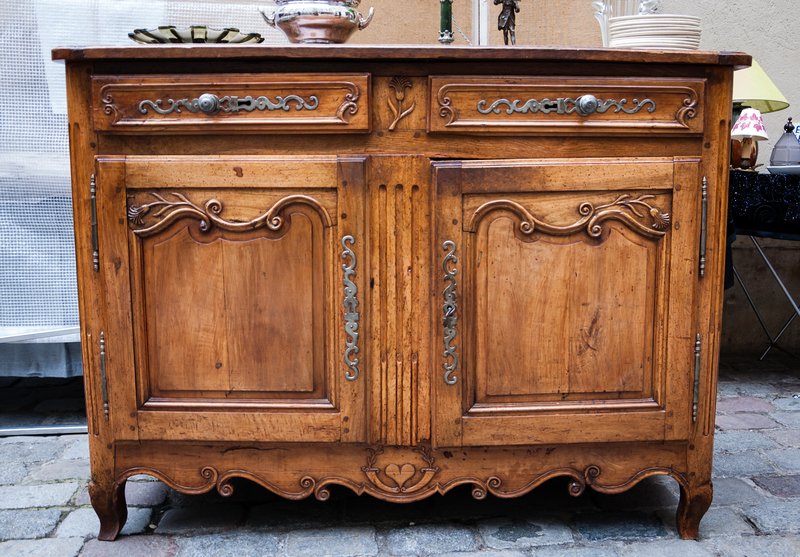Eco-Friendly Disposing Tips for Pots and Pans
Have your favorite skillet or saucepan finally reached the end of its cooking life? Wondering how to dispose of old pots and pans responsibly? With a growing commitment to sustainable living, finding eco-friendly ways to dispose of your cookware is essential to reducing landfill waste and minimizing your environmental footprint. This comprehensive guide explores the best eco-friendly disposing tips for pots and pans, ensuring that your old kitchenware gets a second life or is recycled in the most sustainable way possible.

Why Eco-Friendly Disposal Matters
Many of us have an assortment of pots and pans that eventually become unusable due to warping, chipping, or loss of nonstick coating. Simply tossing them in the trash contributes to overflowing landfills and wasted resources. Most cookware contains metals, coatings, or plastics that may take hundreds of years to decompose and sometimes release toxins as they break down.
- Promotes circular economy: Recycling or repurposing items keeps valuable materials in use.
- Reduces landfill waste: Diverting pots and pans from landfills helps minimize environmental harm.
- Minimizes environmental impact: Environmentally-conscious choices conserve resources and energy.
What Are Pots and Pans Made From?
Before you can properly and responsibly dispose of your cookware, it's important to understand what materials they are made from:
- Stainless steel
- Cast iron
- Aluminum
- Copper
- Enamel-coated metal
- Nonstick (Teflon) coated
- Ceramic
Each material has unique considerations for eco-friendly pots and pans disposal. Let's explore the sustainable pathways for each kind.
Eco-Friendly Ways to Dispose of Pots and Pans
1. Donate Usable Cookware
If your pots and pans are still functional but you're upgrading or decluttering, donate them to give them a second life. Many organizations, shelters, thrift stores, and community kitchens accept gently used cookware. Be sure to clean thoroughly before donating and check donation guidelines for condition requirements.
- Charity thrift shops: Goodwill, Salvation Army, and local charities.
- Community kitchens: Soup kitchens, shelters, and food pantries.
- Schools and churches: Youth programs or fundraising sales.
- Online platforms: Freecycle, Facebook Marketplace, or neighborhood groups.
2. Repurpose and Upcycle Pots and Pans
Get creative! Upcycling is one of the most eco-friendly methods for dealing with old pots and pans. Here are some inventive ideas:
- Planters or garden containers: Drill drainage holes for herbs or flowers.
- Storage solutions: Organize office supplies, utensils, or craft materials.
- Decorative pieces: Paint and hang on walls as vintage art.
- Bird baths or feeders: An old skillet or saucepan can attract feathered friends.
- Candle holders or chandeliers: Add some rustic charm to your living space.
*Tip: Upcycling not only keeps cookware out of landfills but also invites creative expression into your home!*
3. Recycle Pots and Pans
If donation or upcycling isn't possible, the next best option is recycling. Metal cookware is recyclable, but not always in your curbside bin. Here's how to do it responsibly:
- Local scrap yards: Most metal pots and pans (stainless steel, aluminum, cast iron, copper) can be taken to a metal scrap yard. Remove non-metal parts if possible (like plastic handles or glass lids).
- Municipal recycling centers: Some communities have special drop-off stations for cookware and other household metals.
- Retailer recycling programs: A few kitchenware brands or stores occasionally offer take-back or recycling initiatives. Check with local or national retailers for programs.
Important Recycling Considerations:
- Nonstick pans: Many recycling centers will not accept nonstick-coated cookware due to the PTFE (Teflon) layer. Remove the coating if possible, or contact the manufacturer for guidance.
- Enamel or ceramic coating: These surfaces may not be accepted by all scrap yards; check before dropping off.
- Glass lids: Tempered glass from cookware can be tricky to recycle curbside but might be accepted at certain recycling facilities.
4. Manufacturer Take-Back Programs
Some cookware manufacturers offer take-back or recycling programs for their products. For example, brands like Calphalon and TerraCycle have been known to collaborate on recycling efforts. Check your cookware brand's website or contact customer service to see if they offer a sustainable disposal solution.
5. Household Hazardous Waste Events
If your city holds special recycling or hazardous waste collection events, check if they accept cookware, especially nonstick or ceramic pans. These events ensure that difficult-to-recycle materials are processed responsibly and do not end up polluting the environment.
6. Curbside Recycling: Yes or No?
While many of us rely on curbside recycling for bottles, cans, and paper, most curbside programs do not accept cookware due to size, coatings, or mixed materials.
- Check your local recycling program's website for item-specific guidance.
- Never place large items or non-approved metals in the bin, as this can contaminate recycling streams.
Material-Specific Eco-Friendly Disposal Tips
Stainless Steel and Aluminum
- Fully recyclable at most scrap metal facilities. Remove plastic or wooden handles for best results.
- Clean to remove grease and food residue before dropping off.
Cast Iron
- Highly valued at scrap yards and can often be refurbished.
- If cracked or deeply rusted, still recyclable as scrap metal.
- Check vintage resale shops for collectible or antique pans.
Copper
- Copper is valuable and almost always accepted by scrap metal buyers.
- If pan is lined with tin or other coatings, inform the recycler.
Nonstick (Teflon) Coated Cookware
- Cannot usually be recycled through regular scrap yards.
- Contact manufacturer or check special recycling events.
- Do not burn or try to scrape off the nonstick coating, as it may release toxins.
Ceramic and Enamel-Coated
- May not be accepted by all recyclers; check with local centers.
- Repurpose or upcycle if possible.
- If chipped or cracked, do not donate for food use.
Green Kitchen Tips to Extend the Life of Your Cookware
The most sustainable option is to keep your cookware in use for as long as possible. Extend your pots and pans' usable life with these eco-friendly tips:
- Clean gently: Avoid abrasive sponges to preserve coatings and metals.
- Season cast iron: Regular seasoning keeps rust and sticking at bay.
- Use proper utensils: Wooden or silicone tools prevent scratches on nonstick and ceramic surfaces.
- Store carefully: Stacking with protectors can prevent dents and chips.
- Repair when possible: Replace handles or re-season pans before disposing of them.
Frequently Asked Questions About Eco-Friendly Pot and Pan Disposal
Can I put old pots and pans in my recycling bin?
Most curbside programs do not accept bulky metal items or coated cookware. Use scrap yards or special recycling drop-offs instead.
What should I do with broken nonstick pans?
Try to locate a manufacturer take-back program or special hazardous waste recycling event. If those aren't available, check with your local waste authority for safe disposal instructions.
Are glass lids recyclable?
Tempered glass (used in cookware lids) usually isn't accepted with regular glass recycling, but some recycling centers take them. Don't toss in regular recycling bins without confirming.
Can ceramic or enamel pans be recycled?
Sometimes, but not always. Most recycling facilities don't accept ceramics coated with metal for food safety reasons. Upcycling or disposal at a dedicated waste center is preferred.

Conclusion: Make Every Kitchen Cleanup Green
Disposing of old pots and pans doesn't have to cost the planet! By following these eco-friendly tips for discarding cookware, you make steps toward a greener lifestyle while inspiring others to reduce, reuse, and recycle. Donate when possible, upcycle creatively, and recycle responsibly to keep your kitchen and our world clean and vibrant.
Looking to lead a more sustainable home life? Make conscious choices with every item, starting with your kitchenware--because eco-friendly disposal is more than a trend; it's a way of life!
Further Resources on Eco-Friendly Waste Management
Practice smart, sustainable living with these earth-friendly tips for disposing of pots and pans--your kitchen and the environment will thank you!